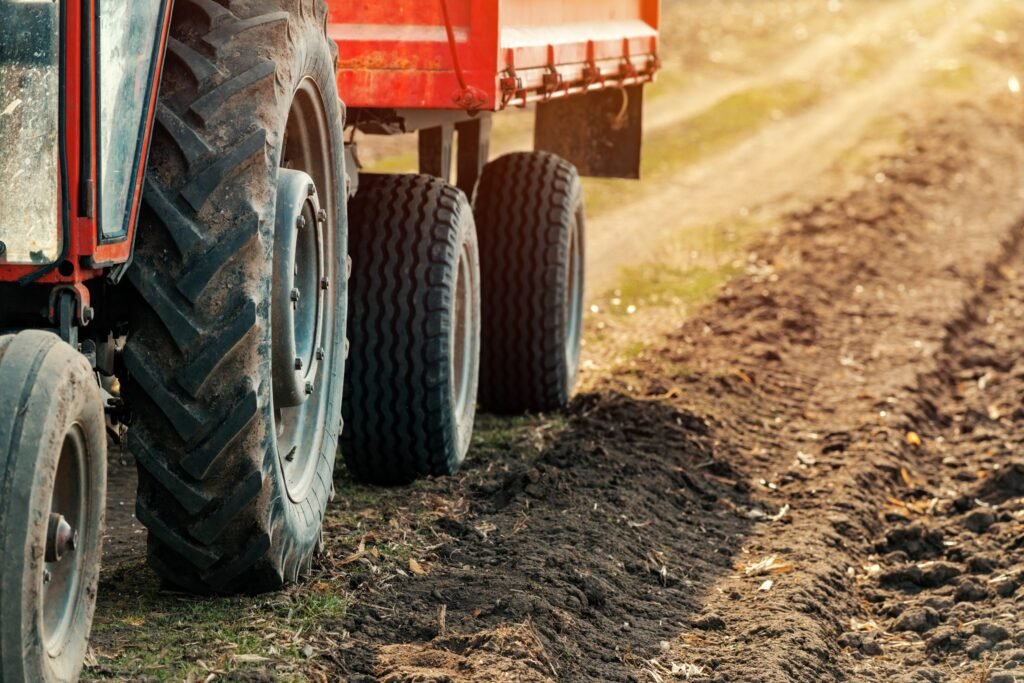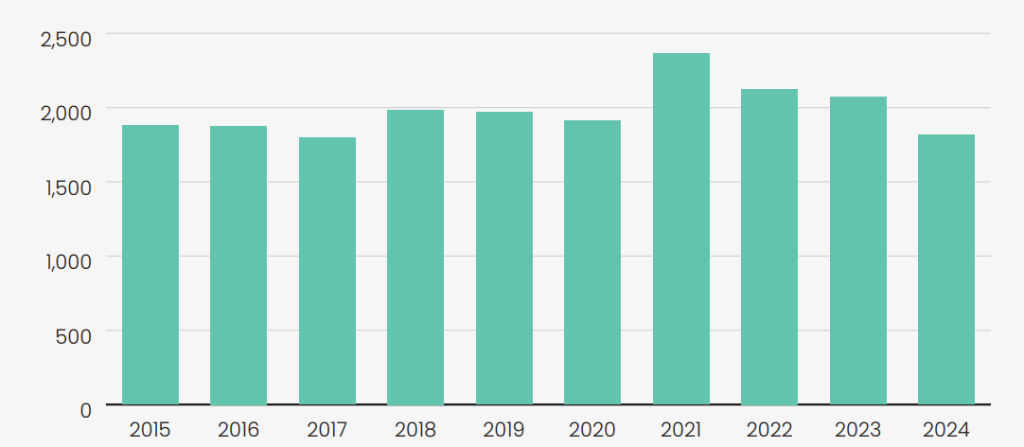An estimated 85,000 agricultural tyres are sold in Ireland on an annual basis, according to the Farm Tractor and Machinery Trade Association (FTMTA), just one statistic contained in an exclusive economic report launched this week.
The association published an economic report, produced by ifac, which outlined that the industry is worth almost €5 billion to the Irish economy.
The sector’s total direct output is estimated at €2.57 billion annually, encompassing new machinery sales, domestic manufacturing, imports, exports, spare parts and after sales service.
An average 1,980 new tractors were sold per annum in Ireland from 2015 to 2024, peaking in 2021.
While 85,000 agri tyres were estimated to have been sold annually, the annual value of farm machinery tyre sales is considered to be €63.8 million.
The FTMTA has stressed in the report that the farm machinery sector is not a “stagnant” market.
The main challenges being experienced by stakeholders in the industry surround labour shortages and economic factors such as inflation.
More than four out of 10 (42%) people surveyed by ifac said they plan to invest in their business over the next 12 months.
Investment options included new premises; new tractors/machinery; technology updates; staff training; marketing/advertising.
The respondents said the main reasons for investing are to increase efficiencies and expand company operations.
The report indicates that the majority of investment planned, or underway, is valued at over €300,000 and almost half of those surveyed said they do not receive any grant aid.
Costs for the sector
According to the report, businesses in the farm machinery sector have faced “unprecedented” cost increases, which “have fundamentally changed the economics of farm machinery operations in Ireland”.
The rising cost of wages has been a significant challenge for those in the sector and the FTMTA wants to discuss this challenge with the government to ensure it understands the impact of policy changes.
According to the report, the national average weekly wage has increased by 28% between 2020 and 2025, which is placing considerable pressure on labour intensive operations.
The FTMTA report has called for a strong partnership between industry and the government to ensure that Ireland’s farm machinery sector can reach its full potential as a “high-value and innovative” part of the economy.
The key areas the association wants to focus on are: recognition and engagement; promotion of the industry through communication; and training and development of young people, especially given the challenges around labour shortages.


